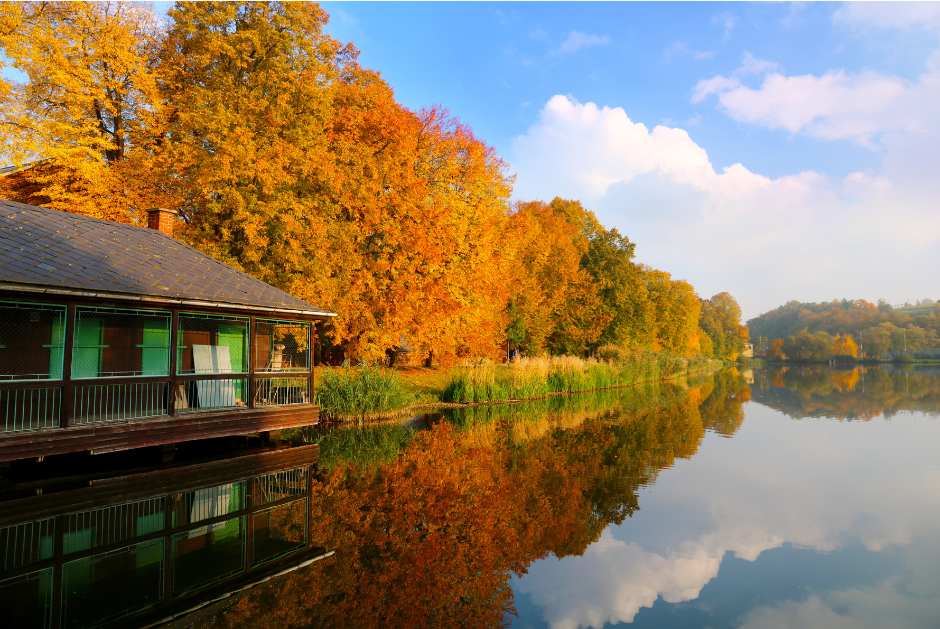
You want to buy a cottage, but can you afford a cottage? At the height of the coronavirus pandemic, cottages became hot commodities across the country and prices skyrocketed. Traditionally, these properties were considered recreational by nature, visited on weekends during the summer or for seasonal maintenance by winter.
But why can’t you live in your waterfront cottage all year long? This was the question many households had during the pandemic. When they had their answer from employers by way of remote work, they packed up their things and relocated to the likes of Muskoka, the Kawarthas and Haliburton, to buy one of the many beautiful cabins, chalets and cottages in the region.
Now that the Canadian economy is reopening, offices are opening their doors again and welcoming workers back to the break room. How will this impact young families and professionals who sold their condominiums in major urban centres and moved north? This is the question many industry experts and prospective homebuyers are now considering.
Although the broader Canadian real estate market is slowing down due to rising interest rates, prices continue to be elevated. This is the nature of inflation: higher prices are sticky and tough to tamp down. So, what about cottages?
Can You Afford a Cottage?
Cottages used to be affordable, allowing many homeowners to have a recreational property in addition to their primary residence. It is a nice respite from city life. But with many Canadians flooding cottage country for permanent residence, prices have skyrocketed over the last couple of years. While this is great for local economies, this is pricing out many newcomers.
Here is a look at the state of some of the largest cottage markets in Canada as we kicked off “cottage season” and the price forecasts for the remainder of the year:
Whistler, British Columbia
- Average Residential Price: $1.87 million
- Annualized Change: +31.78%
- 2022 Price Forecast: 0%
Canmore, Alberta
- Average Residential Price: $877,678
- Annualized Change: +14.92%
- 2022 Price Forecast: +5%
Southern Georgian Bay, Ontario
- Average Residential Price: $1.1 million
- Annualized Change: +30.05%
- 2022 Price Forecast: 9%
Muskoka, Ontario
- Average Residential Price: $969,324
- Annualized Change: +11.22%
- 2022 Price Forecast: 18%
Rideau Lakes, Ontario
- Average Residential Price: $582,000
- Annualized Change: +23.04%
- 2022 Price Forecast: 8%
Summerside, Prince Edward Island
- Average Residential Price: $300,000
- Annualized Change: +20%
- 2022 Price Forecast: 5.5%

Despite higher interest rates, a housing supply shortage and ample activity in recreational markets could drive average residential prices as much as 20 per cent in these regions for the rest of 2022.
“The level of activity we [have been] seeing in recreational markets across the country is a direct reflection of the stability and quality of life that these regions provide,” said Christopher Alexander, the President of RE/MAX Canada. “Throughout the pandemic, we saw a shift in consumer behaviour, where in many cases, liveability and affordability trumped all other factors. Yet, many recreational properties, whether as a primary or secondary residence, afford buyers the best of both worlds, compelling Canadians to settle in these areas for the long term. This is putting upward pressure on these markets.”
But could the cottage boom start tapering off heading into 2023?
This is the expectation amid rising mortgage rates and the possibility of slowing economic growth. Ballooning borrowing costs could impact buying patterns for the next few years, be it for recreational properties or principal residences in urban and suburban housing markets.
“It doesn’t directly affect the housing market in the sense of prices, but it does affect the buying,” Lisa Hannam, the executive editor of MoneySense, told Cottage Life Magazine. “We are currently in a seller’s market, so it does seem a little bleak if you’re trying to get into it.”
“We have sellers who are holding on to the 2020 and 2021 prices, and then you have the buyers who are thinking about 2023, 2024 prices,” she added. “So, you’re probably going to negotiate a lot more than you expected.”
Suffice it to say; the cottage market has turned into a chess match between buyers and sellers.
Are Cottages Still an Affordable Option?
For years, cottages and holiday destinations in rural British Columbia or Ontario were affordable alternatives to conventional properties in the big cities. Like everything else in the overall economy, the COVID-19 public health crisis changed everything in the Canadian real estate market. Every unit under the sun has been in demand, whether a shack in the downtown core or a cabin in the woods. With pent-up savings, relatively low interest rates and a booming stock market, Canadian households got wealthier and started achieving the dream of home ownership. But recent market data has been showing the first price drops in the real estate sector in about two years.
Whether the cooling trends can seep into cottage country or not remains to be seen. For now, take the family to the Kawarthas or South Okanagan and enjoy the sights and sounds of cottage life!
Courtesy: remax.ca
Posted by Infinity Admin on
Leave A Comment